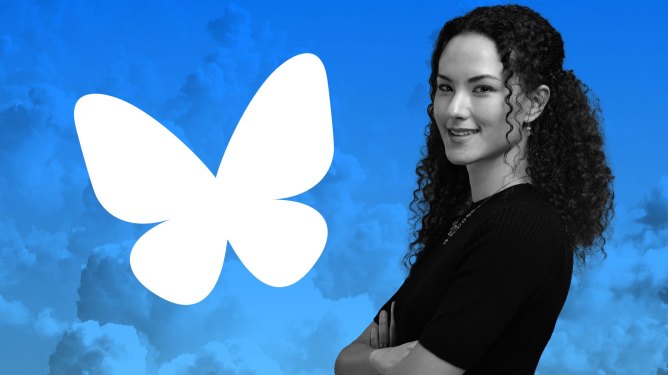Meta’s Decision to Remove Politics from Recommendations Sparks Opportunity for Bluesky
The Rise of Decentralized Social Media: Bluesky and the Future of Online Interaction
Meta, the parent company of Facebook, Instagram, and WhatsApp, has recently announced plans to remove politics from its recommendations across these platforms. This decision has sparked a debate about the role of social media in shaping public discourse and the need for decentralized alternatives. One such platform is Bluesky, a Twitter-like app that allows users to choose their own feed and customize their online experience.
A New Approach to Social Media: The Bluesky Model
Bluesky’s CEO, Jay Graber, recently explained how Meta’s decision is emblematic of the types of problems that could emerge when one algorithm is run by one company. According to Graber, this approach can lead to a "black box" where the company has complete control over what users see and don’t have a choice in the matter. In contrast, Bluesky’s app offers a decentralized approach where users have more control over their online experience.
Choosing Your Own Feed: The Power of Customization
One of the key features of Bluesky is its ability to allow users to choose their own feed. Graber explained that this means users can select from various custom feeds and trending topics, or even filter out politics entirely. For example, one user might have a highly political social experience by following politically themed feeds, while another user could opt for a more relaxed experience with no politics.
The Possibility of Multiple Modes: Switching Between Feeds
Graber also suggested that users can switch between different modes based on what they want to see at the time. This means that one person might have a quiet, cozy experience with no politics, while another user could be following trending topics and Super Bowl discourse.
Decentralized Social Networking: The AT Protocol and Federation
Unlike Meta-operated platforms or even Elon Musk’s X (formerly Twitter), Bluesky presents a different approach to social media. It will offer a decentralized social networking service powered by the AT Protocol, which is different from ActivityPub used by Mastodon. Although Threads, another app launched by Meta, plans to integrate with ActivityPub, Meta’s moderation decisions will ultimately apply to everyone using Threads.
The Growing Popularity of Bluesky
Bluesky has already gained significant traction since its release last week, with nearly doubling its user base and closing in on 5 million users. The app is working to enable federation later this month, allowing it to connect with other decentralized platforms like Mastodon.
Why Bluesky’s Customization Options Are a Game-Changer
Bluesky aims to offer more customization options than traditional social media platforms. According to Graber, this means that users can choose from various feeds and trending topics or create their own custom feed based on their interests. This level of control is not available on other platforms, making Bluesky an attractive alternative for those seeking a more personalized online experience.
The Rise of Decentralized Social Media: What’s Next?
Meta’s decision to remove politics from recommendations has highlighted the need for decentralized alternatives like Bluesky. As users become increasingly disillusioned with traditional social media platforms and their lack of control, decentralized options are gaining popularity. With its focus on customization and user control, Bluesky is poised to be a leading player in this emerging market.
What This Means for Social Media Users
The rise of decentralized social media platforms like Bluesky offers users more control over their online experience. By allowing users to choose their own feed and customize their interactions, these platforms provide an alternative to the algorithm-driven feeds found on traditional platforms.
The Future of Online Interaction: Decentralized Social Media
The shift towards decentralized social media is not just about offering users a choice in what they see; it’s also about creating a more open and transparent online environment. By giving users control over their interactions, these platforms can help to reduce the influence of large corporations on public discourse.
Conclusion
Meta’s decision to remove politics from recommendations has sparked an opportunity for decentralized social media platforms like Bluesky. With its focus on customization and user control, Bluesky is poised to be a leading player in this emerging market. As users increasingly seek more personalized online experiences, the rise of decentralized social media is likely to continue.
Related Posts


